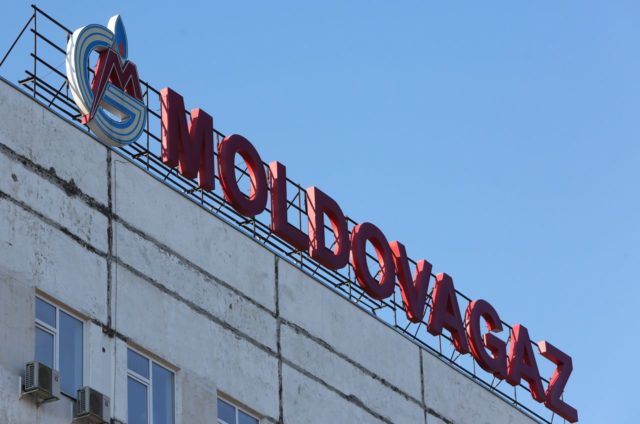
Russian Gazprom Ready to Pounce on Moldovan Prey (Part One)
Publication: Eurasia Daily Monitor Volume: 18 Issue: 164
By:

Using Gazprom as its political instrument, the Kremlin threatens to halt natural gas supplies to Moldova temporarily on November 1, and indefinitely from December 1, unless Moldova accepts Russia’s financial and political conditions for continuing gas deliveries (see below).
Dmitry Kozak, the deputy head of Russia’s Presidential Administration, directly participates in the gas negotiations with Moldova, packaging the issue of gas supplies with other issues, including political ones. Kozak has even hosted two rounds of negotiations during October—a highly unusual move underscoring the Kremlin’s leading role in this matter.
Russia’s main targets in the current European gas crisis are: 1) Ukraine (to eliminate that country’s gas transit route to Europe or, alternatively, compel Ukraine to accept Russia’s terms of gas transit and gas trade), and 2) Germany (to lock it into structural dependence on Russian gas and other forms of business generated by the gas sector). Moldova is merely a collateral target and target of opportunity for Russia. The Kremlin views the current European gas crisis as a window of opportunity to destabilize and subdue Moldova’s recently elected pro-Western authorities.
Moldova’s current authorities went out of their way to appease Russia during their successful presidential and parliamentary election campaigns and after taking over power. This appeasement strategy, in policy and rhetoric, dictated by Moldova’s domestic circumstances (see EDM, July 13, 15, 19, August 12), seemed to work until Russia’s gas weapon struck.
Russia has covered 100 percent of Moldova’s natural gas consumption from 1991 to date. Moldova has never had direct or indirect access to other gas supplies. The long-term supply contract between Gazprom and Moldovagaz has, since 2008, been prolonged from year to year each September, adjusted each time to prices on international markets. The latest annual version expired at midnight on September 30, 2021, but Gazprom has not prolonged it by another year. Instead, Gazprom dragged the negotiations from June until September 30, on which date, at 9 PM, Moldovagaz had to sign a highly onerous contract for the month of October.
The Kremlin demands more concessions for further monthly contracts in November and December, to be followed by an annual contract if Moldova accepts those conditions. Lacking alternatives, and facing the winter without gas reserves, Moldova had to sign on the dotted line for October; and it may have to sign again for November and December as stopgap measures. The Moldovan government, meanwhile, is casting about for some alternative solutions, none in sight as yet.
Under the contract for October, Moldovagaz must pay $790 per one thousand cubic meters of Russian gas, up from $550 in September (the final month of the expired annual contract), each time in line with European spot market prices. Gazprom has committed to supplying 90 million cubic meters (mcm), which would cover Moldova’s normal seasonal requirement for October. However, Gazprom only reserved 54 mcm of pipeline capacity in Ukrainian transit pipelines for delivery to Moldova. This feint has caused a shortfall of more than one third of Moldova’s monthly gas requirement as October draws to a close. Gazprom claims that the contract’s signing on September 30 was too late for it to reserve pipeline capacities that would have fully covered the contractual volume of 90 mcm (Kommersant, October 22; RIA Novosti, October 22, 25; TASS, October 26).
Four rounds of negotiations (two in Moscow and two in St. Petersburg) were held during October toward a new Russian-Moldovan agreement on gas-related issues. The Russian side, however, introduced also political issues, which were not made public by either side.
Kozak hosted negotiations in Moscow on October 7 and October 21–22, with Moldovan delegations headed both times by Deputy Prime Minister Vladislav Kulminski. Neither of them specializes in energy or any economic matters. Each of them is responsible for negotiations on the Transnistria conflict. This fact raises concerns that Moscow may be pressuring Chisinau to discuss Transnistria in a package with gas supplies, where Russia holds additional heavy leverage. According to Moldovan insiders, Kozak did make a number of specific proposals regarding Transnistria on October 7 informally, not in writing but verbally for plausible deniability. On October 13, according to Chisinau insiders, Kozak’s office followed up, asking Chisinau whether it could offer a concept for a sustainable resolution of the Transnistria conflict.
Chisinau invited Kozak to visit in the third week of October (it would have been Kozak’s second visit per Chisinau’s invitation, after his first visit in August). Kozak declined this time, and Chisinau sent Kulminski to Moscow again (TASS, October 15; Ziarul National, October 18, 19).
On the business side, Moldovan Deputy Prime Minister and Infrastructure Minister Andrei Spinu and Moldovagaz Board Chairman Vadim Ceban participated opposite Russian Energy Minister Nikolai Shulginov and GazpromExport General Director Yelena Burmistrova in the October 21–22 Moscow negotiations. Spinu and Ceban also negotiated with Burmistrova on October 8 and with Gazprom CEO Aleksei Miller on October 27, both times in St. Petersburg. This latter round yielded no information at all in the public domain, but the other three rounds did reveal the two sides’ conflicting positions (see Part Two).



